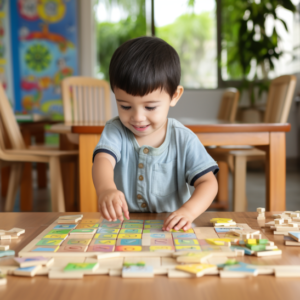Nurturing Lifelong Learning and Imagination Through Books
As a pediatrician specializing in child development, I wholeheartedly believe that one of the most precious gifts you can give your child is a love of reading. In this article, we’ll explore the profound impact that early literacy and reading have on a child’s development and provide practical strategies for parents to foster this essential skill.
The Power of Reading in Early Childhood
Reading is more than just a pastime; it’s a cornerstone of childhood development. Here’s why reading is so vital in the early years:
1. Cognitive Development: Reading stimulates brain development, enhancing language skills, vocabulary, and comprehension.
2. Emotional Development: Books help children understand and express complex emotions, fostering empathy and emotional intelligence.
3. Creativity and Imagination: Reading opens doors to imaginary worlds, sparking creativity and a love of storytelling.
4. Bonding and Connection: Sharing books with your child strengthens the parent-child bond through shared experiences and cuddle time.
5. School Readiness: Early exposure to books and literacy sets the stage for success in school, including better reading and writing skills.
Strategies to Promote Early Literacy
Now, let’s explore practical strategies to promote early literacy and a love of reading in your child:
1. Start Early: Begin reading to your child from infancy, even before they can understand the words. It’s about building a positive association with books.
2. Make Reading Routine: Incorporate reading into your daily routine, such as bedtime stories or reading before meals.
3. Choose Age-Appropriate Books: Select books that align with your child’s age and interests. Libraries and bookstores offer a wide range of options.
4. Be Interactive: Engage with the book by asking questions, pointing to pictures, and encouraging your child to participate in the story.
5. Create a Reading-Friendly Environment: Set up a cozy reading nook in your home with a variety of books within easy reach.
6. Be a Reading Role Model: Let your child see you reading for pleasure. Children often mimic their parents’ behaviors.
7. Visit the Library: Libraries offer a wealth of resources, from storytime events to borrowing books. Make library visits a regular family outing.
8. Explore Different Genres: Introduce your child to various types of books, including fiction, nonfiction, poetry, and picture books.
9. Encourage Storytelling: After reading, encourage your child to retell the story in their words, fostering comprehension and creativity.
10. Celebrate Achievements: Celebrate milestones like finishing a book or learning a new word. Positive reinforcement fuels a love of reading.
Reading Is a Gift for Life
By emphasizing the importance of reading in childhood and making it an integral part of your family’s routine, you’re giving your child a priceless gift—the gift of a lifelong love of learning and imagination. Reading not only prepares them for success in school but also enriches their lives with stories, knowledge, and creativity.



